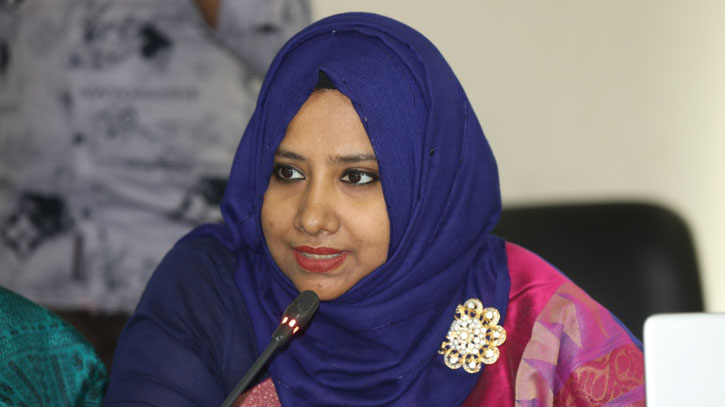
Photo: Courtesy
Every year, from November 25 to December 10, people around the world unite for the 16 Days of Activism Against Gender-Based Violence (GBV). These dates are no coincidence—they connect the International Day for the Elimination of Violence Against Women with Human Rights Day, highlighting that safety and dignity for women and girls are fundamental human rights. But what makes these 16 days so important? Why must we continue this fight, not just for these two weeks, but every single day of the year?
Violence against women and girls is not just a distant issue or a rare event—it is everywhere. According to UN Women, one in three women worldwide will face physical or sexual violence at some point in her life, often at the hands of someone she knows and trusts. Behind every statistic is a person: someone’s mother, daughter, sister, or friend.
This violence takes many forms. It could be domestic abuse that remains hidden behind closed doors, sexual harassment in workplaces or public spaces, or psychological and financial control that traps women in silence. It includes practices like child marriage, human trafficking, and female genital mutilation. The impact of this violence ripples far beyond individuals, tearing at the fabric of families, communities, and societies. It perpetuates poverty, inequality, and suffering on a global scale.
The 16 Days of Activism shine a light on the voices that often go unheard: the survivors. For many, sharing their stories is a way to reclaim their power, break the silence, and inspire change. These testimonies remind us of the courage and strength of those who have endured unimaginable pain. They also show us how far we still have to go in building systems that support survivors and hold perpetrators accountable.
By listening to survivors, we can better understand the systemic failures that allow this violence to continue. Their voices derive movements for justice, drive policy reform, and ignite conversations that challenge societal norms.
At the heart of gender-based violence are unequal power dynamics and deeply ingrained beliefs about gender roles. These beliefs allow patriarchal systems to thrive, normalizing violence and inequality.
The 16 Days of Activism create space for education and dialogue. Campaigns during this time challenge harmful stereotypes and encourage people to rethink what respect, equality, and safety look like. By raising awareness and fostering open conversations, we take small but meaningful steps toward a world where women and girls are valued and protected.
Even with international frameworks like the Convention on the Elimination of All Forms of Discrimination Against Women (CEDAW), many countries lack the laws and resources needed to effectively prevent and address GBV. The 16 Days of Activism call on governments, institutions, and communities to do better.
This means more than passing laws—it means enforcing them. It means funding shelters and support services for survivors, training law enforcement to respond sensitively, and educating communities about the importance of equality and consent. It’s a call for accountability and action, not just promises.
This year's 16 Days of Activism Against Gender-Based Violence presents a vital opportunity to highlight the principles of the Beijing Platform for Action. Women’s empowerment lies at the heart of the Beijing Platform, with a strong focus on achieving gender equality.
Adopted nearly three decades ago, the platform remains a cornerstone for achieving gender equality, calls for bold policies, inclusive leadership, eliminating violence against women and girls and unwavering solidarity. During these 16 days, we must renew our commitment, elevate voices, and take decisive steps to honour the pledges of the Beijing Platform.
The COVID-19 pandemic revealed just how vulnerable many women and girls are. Lockdowns meant safety for some, but for others, it meant being trapped at home with their abusers. Reports of domestic violence surged globally, exposing the weaknesses in our systems of protection.
This “shadow pandemic” taught us that addressing GBV is not optional—it is essential, even during crises. The 16 Days of Activism keep this lesson at the forefront, reminding us that we need long-term, resilient solutions to protect women and girls.
One of the most powerful aspects of the 16 Days of Activism is its ability to inspire future generations. By educating young people about gender equality and respect, we are planting seeds of change. These young advocates will grow into allies, leaders, and change-makers who continue the fight against GBV.
While the 16 Days of Activism provide a focused time to act, the work does not stop there. Violence against women and girls is a daily reality, and our efforts to end it must be just as constant. Governments, organizations, communities, and individuals all have a role to play in building a world where no woman or girl has to live in fear.
These 16 days are more than just a campaign—they are a call to action. They remind us of our shared responsibility to end violence, honour the resilience of survivors, and create a safer, more equitable world.
We must use this time to reflect on how to contribute, not only during these 16 days but every day. Together, we can drive meaningful change and ensure a future where every woman and girl can live with dignity, safety, free from violence and discrimination.
Messenger/Tareq








